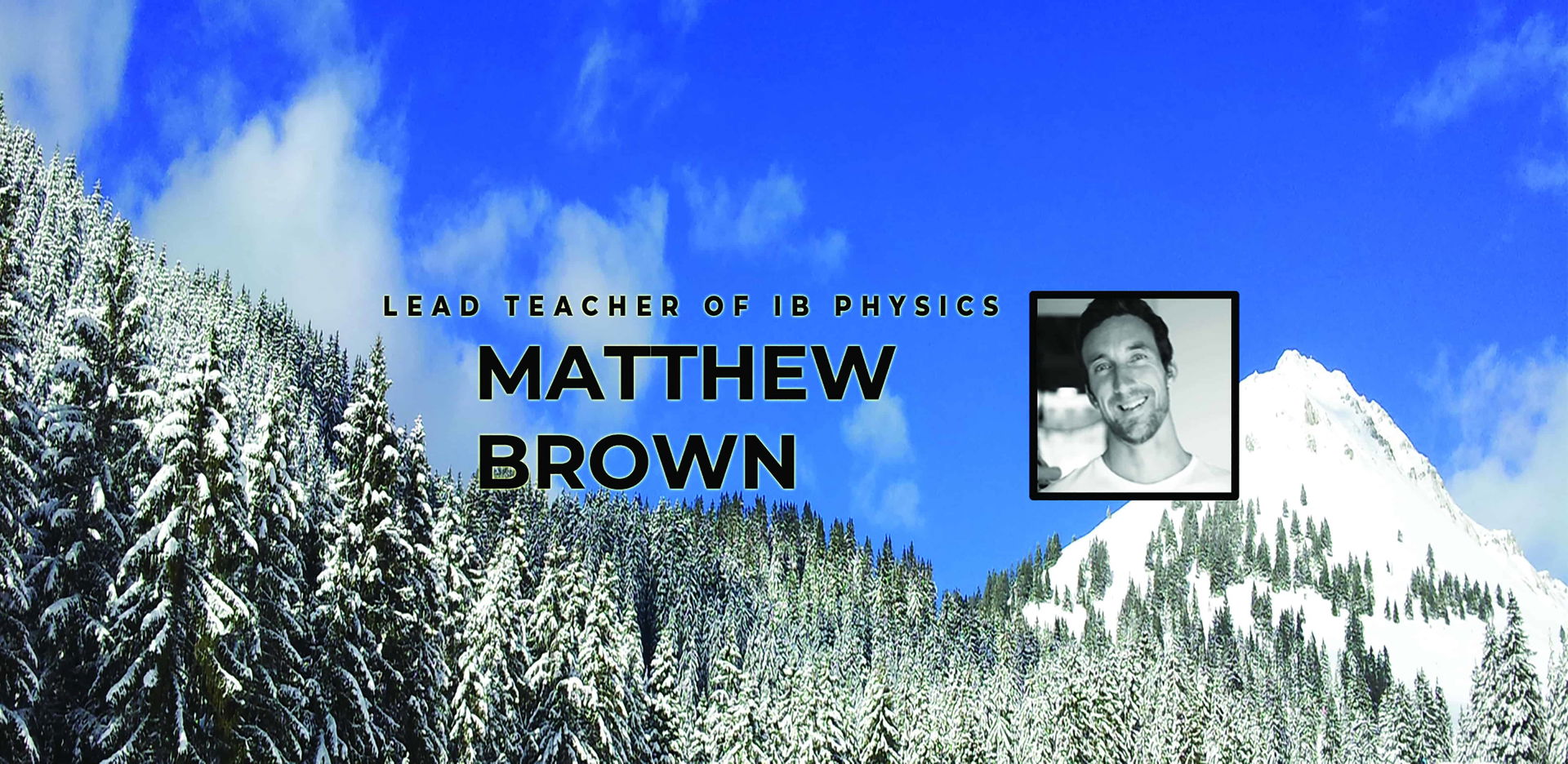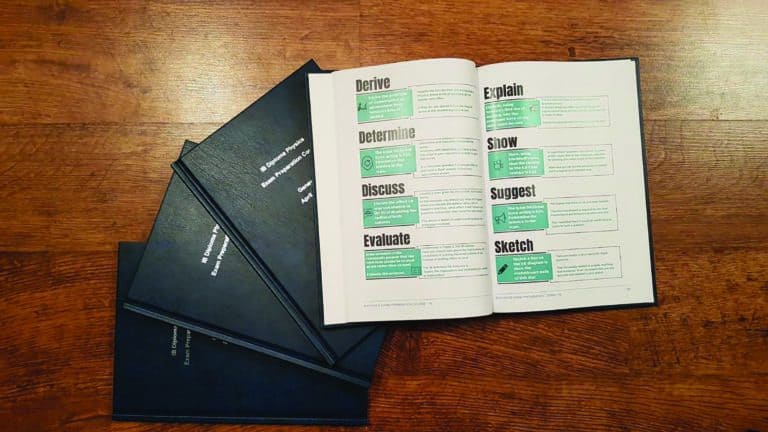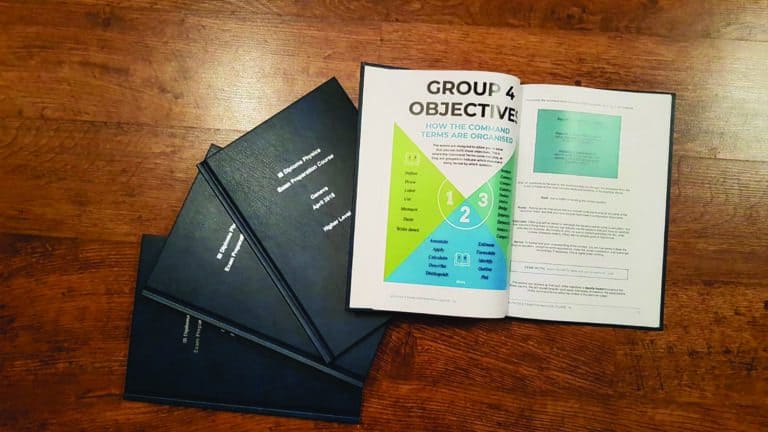What goes into preparing a top quality IB Revision Course?

Revision courses provide valuable support to students, alleviate any fears they may have about the final exams and help to shed light on and rectify any misconceptions they may have at this stage in the Diploma programme. All students benefit from revision courses, whether they are struggling in a particular subject or topic, looking for a way to consolidate their learning, or wanting to hone their practice in order to achieve that level seven. A meaningful revision course then needs to be more than just revising content and practising past-paper questions. It should provide students with the tools to unpack exam questions as well as give them thorough approaches to responding in a way that demonstrates all that they know. A great quality revision course ensures that every minute is of enduring value to your child.
The primary question I asked myself when designing TutorsPlus’ 2-day IB Physics revision course is: “What do I want students to take away from these two days?”
A simple enough question, one would imagine, but when you’re trying to compress what is already a knowledge-dense, two-year diploma program into two days, it can be difficult to see how to cover everything you regard as ‘the most important’ without losing potency, especially as there is a lot of content surrounding exam techniques for a course at this level.

WHAT DOES A GREAT REVISION COURSE INCLUDE?
For a revision course to be excellent value, it needs to be a small group of students. This gives students the confidence and opportunity to discuss problem areas more freely and learn different approaches from peers and tutors. The course obviously needs to be centred around the paper your child will be facing in the exam, dividing the days based on the order of the exams, and dividing the time spent on each part relative to the length of the paper and difficulty of material tested.
A really important aspect that is often not thoroughly covered during the two-years of the Diploma is the expectations of the examiners in each of the papers. There are always very specific skill-sets that examiners want to test in any course and, in Physics, these are tested through particular varieties of questions.
A high-quality revision course will include an overview of the exams; the meaning and organisation of the command terms; grade descriptors and grade boundaries; an explanation of each paper, the format, objectives examined, and the question types that students would face as well as anything else specific to that paper such as pitfalls and common misunderstandings.
A great revision course is not just about reviewing content, it’s also about mastering techniques and processes for success. Therefore, in my revision course, I wanted to create pathways to understanding and unpacking questions that your child could follow and become proficient in. This helps to alleviate any uncertainties they might have about how to tackle a particular question and allows students to free up their brain’s function to focus on producing the most thorough solutions to questions rather than spending time wondering how to approach them.
A revision course run by an experienced IB tutor, teacher or examiner ensures deep knowledge of IB mark-schemes. They will ensure that your child learns how to optimise their answers
to earn the best grades possible. An important element to master in order to achieve this optimisation is to understand what the ‘command terms’ in a question are asking. Because the International Baccalaureate gives students a great wealth of skills that prepare them not only for the challenges at University but also for the longer-term in their professional lives in analytical
fields, these skills are embedded into the command terms.
Students are expected to know these and understand what is being asked of them whenever they see a command term in a question. A good grasp of these ‘command terms’ will allow students to efficiently answer questions fully, minimising the risk of them writing something that is unnecessary or irrelevant.
WHAT GOES INTO DESIGNING A QUALITY REVISION COURSE FOR YOUR CHILD
One of the major differences when teaching a revision course outside your own school is that you don’t know the students. Through a well-developed course preparation questionnaire and email communication, we can get to know the ability of your child and their sticking points, and tailor the course to their needs.
A quality revision course will pay attention to detail in all aspects of the course, from the ‘Course Prep’ expected ahead of the course to the ‘Homework’ booklets given for students to complete between the first and second day of the course. These will contain a mixture of different question styles, some multiple choice, some long answer and some short answer, from a spread
of topics across the entire syllabus.
For each of the question types, it is important that students understand the IB expectation. An experienced revision course tutor will break these down and show worked examples with model solutions along with exam tactics and pitfalls. At the end of each section, I like to consolidate the knowledge into revision advice for each paper, giving practical tips to help your child make the most of the preparation and execution of each paper.
In order for the usefulness of the course to continue when students leave after day two, it’s important for them to have something physical that they can refer to when, inevitably, they forget a part of what was covered. It should ideally be something they can use to recap techniques or clarify approaches, to use whilst attempting practice papers, giving them methodologies of approach to help improve their exam practice.
I hadn’t gone into preparing for this revision course with the mindset of producing a hard-backed exam preparation guide.
Although a lot of this material already existed in the pantheon of IB Physics resources, I developed the techniques of ‘the four stages’ for breaking down exam questions, created the easy-to-follow infographic materials and compiled the systematic discussion of these techniques in a way that hadn’t been done before. It was necessary to create some new material to illustrate particular points and make graphics to show what I would usually be able to demonstrate in class. It took some long weeks of writing and compiling accompanied by a few coffee-fuelled late nights, but the completed book was well worth the effort as I was sure students would leave the course armed with a truly excellent resource to support them in their final stage of revision!

WHAT STUDENTS WILL GAIN FROM A GREAT REVISION COURSE
In summary, a high-quality revision course needs to include the opportunity for your child to:
- Revisit any topics they are not confident in and explore any lingering questions.
- Revise command terms so they perfectly understand exam questions.
- Learn key tips about how best to present their solutions under exam conditions.
- Practice applying and transferring knowledge in a variety of question formats.
- Master exam time-management.
- Understand their studying style and revise in the most effective way for them.
- Learn strategies to handle continuing revision of the more challenging areas.
- Approach their final exams with confidence and clarity of mind to be able to exceed their expectations.
About the Author:
Matthew Brown is an IB Physics Teacher and Examiner & TutorsPlus Physics Tutor. He has over 10 years teaching experience in schools across Switzerland, Czech Republic and the U.K. An Astrophysicist by profession, he has taught summer astronomy classes as well as speaking at international conferences on a range of topics.
TutorsPlus runs a variety of courses related to the IGCSE and IB programmes, including Pre-IB/IGCSE courses, Mock Exam preparation courses, Easter Revision courses and more! See our timetable below for Easter IB Revision courses in Maths, Biology, Chemistry, Physics and Economics. Our highly experienced and qualified tutors also provide private tuition in a range of subjects at any time of year. You can reach TutorsPlus at 022 731 8148 or in**@********us.com
Read more articles here.
